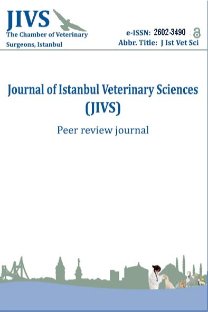Detection of bovine coronavirus in neonatal calve diarrhea in Iran and its phylogenic analysis based on gene N
Bovine coronavirus is a primary cause of neonatal calf diarrhea worldwide, resulting heavy economic
losses to both dairy and beef industry. The Objective of the present study was to screen the fecal samples
for BCoV collected from diarrhea from six geographic region of Iran, with the aim to increase the
knowledge of BCoV prevalence and molecular epidemiology in Iran. 194 fecal samples from diarrheic
calves up to one-month age, based on the geographic area were collected. Samples from all the cases were
screened for the presence of BCoV by commercially available ELISA kit. Furthermore, all positive
samples were subjected to RT-PCR for confirmation for gene N. RT-PCR assay, targeting a 407 bp
fragment of the nucleocapsid (N) gene of BCoV with published primers that could amplify all BCoV
strains. ELISA examination of stool samples revealed that 7.2 % of taken samples were positive for BCoV.
All samples from the south-west, northeast, and west, were negative. The average ages of positive calves
were nine days. The average stool scores in positive and negative samples for BCoV were 2.5 and 2.1
respectively. The results of the present study showed that the occurrence of coronavirus in stool samples of
diarrheic calves in dairy farms of Iran is lower than the other parts of the world. Strains of Iran showed the
most similarity to the European strains, such as France, Croatia, which may have been due to the imported
cattle from these countries.
Keywords:
Bovine coronavirus, cattle neonatal calf diarrhea,
___
- .
- ISSN: 2602-3490
- Yayın Aralığı: Yılda 3 Sayı
- Başlangıç: 2007
- Yayıncı: İstanbul Veteriner Hekimler Odası
